From the padded seat of her delivery cart, Jana Micova takes the reins of her two trusted steeds: Barna and Byka. Stacked neatly behind her are barrels of Pilsner Urquell, which Jana and her fillies will distribute to select pubs across Plzen, some of which have been receiving these horse delivered barrels since 1842. The trio do the rounds twice a week, evoking memories of a bygone era that most locals and tourists are too young to remember. They trot through Plzen whatever the weather; delighting in their job during warm spring dawns and cursing it in the cold winter mornings.
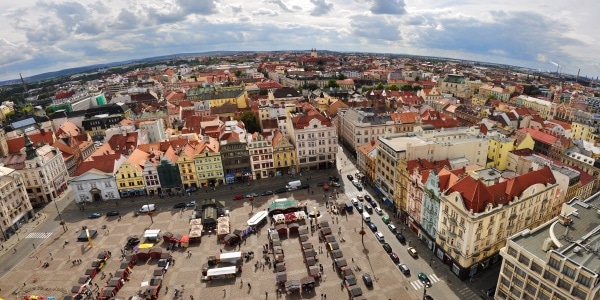
“We like to keep traditions like these alive,” says Honza Dienstbier, a guide at the Pilsner Urquell Brewery, whose surname sounds remarkably like a type of beer. “That’s why we also employ coopers to make our barrels – we’re probably the only brewery in the world that still employs coopers on site.”
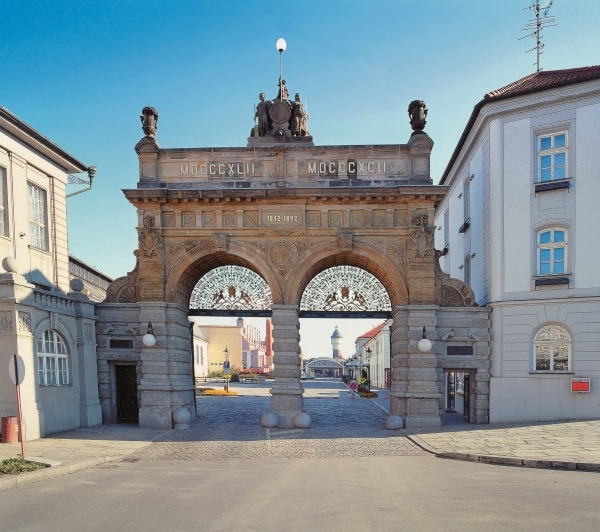
Like all good raconteurs Honza tells his stories over a couple of beers, which we quaff in a tunnel beneath the brewery. Down here, in this misty subterranean passageway, is where they brew the best stuff, he tells me. “This is the unfiltered, unpasteurised pilsner,” he smiles, patting a giant wooden barrel. “It’s brewed the traditional way, but we only make it in small batches – it has to be drunk within five days.” This special brew is served at the brewery and delivered to select local boozers by Jana and her steeds – U Šenku and Na Parkána are amongst the lucky establishments – but the odd consignment does find its way to Prague and even London.

Honza opens the tap of a nearby barrel and lets the cloudy, amber liquid pour into two glasses. He passes one to me; we toast to good health (na zdravi) and take greedy gulps. It’s 10 a.m.
Brewing history
If you’re going to have a pint before lunchtime, this is the place to do it. Regarded by some as the most important brewery in the world, it lays claim to inventing the pilsner lager, the most successful beer on the planet and one that has been replicated from the Ukraine to the U.S.A. and everywhere in between. The legend goes that pilsner was a happy accident, the serendipitous result of a misjudged experiment. In reality it was carefully crafted by the Bavarian brewmaster, Josef Groll, who was employed at the brewery in 1839.
“He travelled the world looking for ideas,” explains Honza. “In England he liked the pale malted barley, so he decided to use that.” Groll found that marrying pale malted barley with strong Czech hops and soft Plzen water was a match made in heaven. The local beer had never tasted so good; in fact Plzen had, by the early 1800s, become synonymous with lousy lager. Every man and his dog was brewing beer in the town and quantity was definitely winning out over quality. “In 1838 the authorities had to spill out 36 barrels of beer because it was unfit to drink,” says Honza, visibly irked. “Because there were no standardized processes, the quality was inconsistent.”
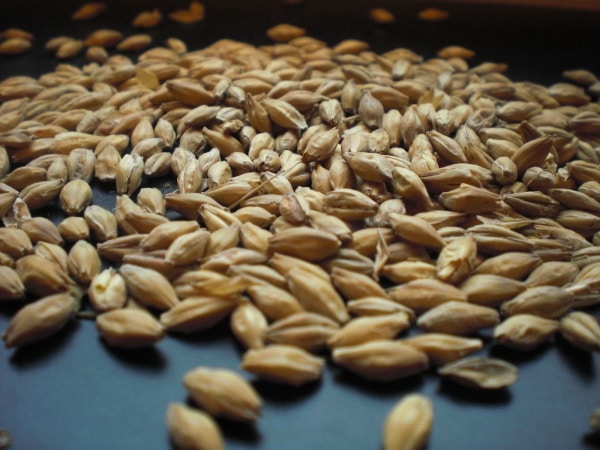
So the good townsfolk of Plzen got together, decided to build a brewery, employ talents such as Groll and introduce standardized practices. Pilsner Urquell was born.
Changing culture
But Plzen is not all about beer. Along with being the pilsner capital of the world, the city also has the bragging rights to being named the European Capital of Culture, 2015 – an honor it will share with the Belgian metropolis of Mons. “This is very exciting for us,” says Mirka Reifova, communications manager for Plzen. “We have been preparing for this for five years and I think it is an opportunity for us to change Plzen’s image of being an industrial city or a city only known for beer.”
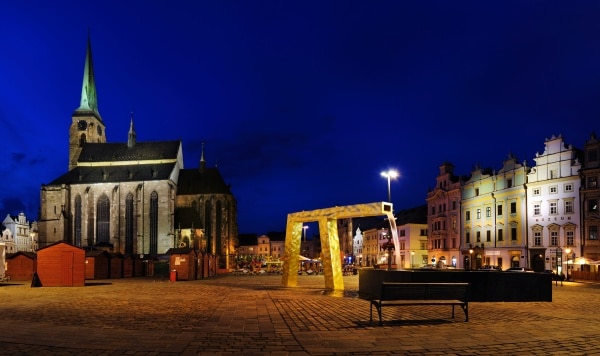
Helping to change those perceptions will be a packed calendar of cultural events – art exhibitions, stage performances and outdoor concerts – which will be taking place in the city throughout 2015. The hotly anticipated New Theatre, officially unveiled this month, will be hosting many performances. It’s the Czech Republic’s first purpose-built theatre to open for more than 50 years.
As well as culture there will be a strong emphasis on the history of Plzen, which will be of particular interest to U.S. tourists. “Plzen was liberated by the Americans in World War II,” says Mirka. “But during the communist regime we weren’t allowed to talk about that – the official line was that we were liberated by the Red Army.”

To learn more about Plzen, also famous for being the home of Skoda, I hook up with local tour guide, Jitka Bilkova, who takes me on a whistle-stop tour of her city. We meet in the old town square, Namesti Republiky, which is surrounded by magnificent baroque façades and dominated by the towering gothic structure of St Bartholomew Church. I quiver when Jitka tells me this charming old town square, with its gorgeous frescos and cobbled streets, was once earmarked for destruction. “During the communist era they wanted to demolish all this to make the city more modern,” she says. “Thankfully they didn’t.”
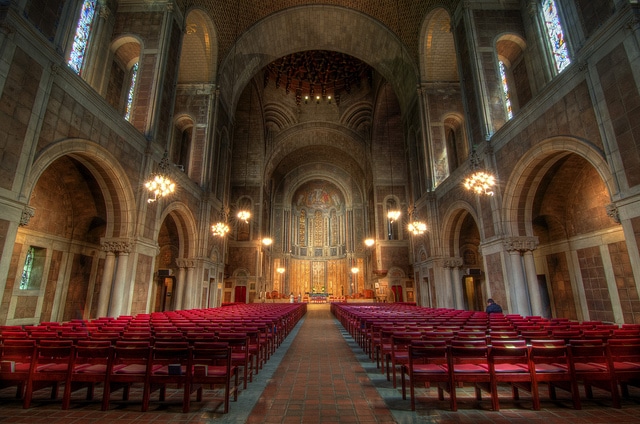
With the 25th anniversary of the fall of the Berlin Wall approaching, talk turns to life in Plzen behind the Iron Curtain. “We couldn’t go abroad – at least not to countries outside the USSR – and there wasn’t enough fruit and vegetables,” she recalls, as we walk in the shadows of St Bartholomew Church. “It wasn’t good to speak about certain things either, but in the communist era everyone had work so there were advantages – a lot of old people feel the modern era is not so good.”
Yet a tangible sense of optimism prevails amongst most locals, who speak enthusiastically to me about Plzen’s status as the European Capital of Culture and of the boost it will give to the local economy and creative industries – and that’s something I think we can all drink to.
www.czechtourism.com/a/pilsen-area/
https://travelsquire.com/ts/czech-republic/stories/
The international dialing code for Czech Republic is 420.
[alert type=white]
Where to Stay:
Hotel Rous – Period features abound in Hotel Rous, which traces its history back to 1295. The attic of this building was once used as a brothel, but today the property, which is located in the thick of the action, has a better reputation as one of Plzen’s prettiest hotels.
Zbrojnická 7, Plzen; +420 377 320 260; www.hotelrous.cz
Hotel Rango – Located in the heart of old town Plzen, the three-star Hotel Rango represents excellent value, even if the rooms are a bit charmless. As well as the usual amenities, there’s also a fabulous underground restaurant. Pražská 10, Plzen;+420 377 221 188; www.rango.cz
Hotel Angelo – Fun and funky in equal measure, the four-star Hotel Angelo is located opposite the Pilsner Urquell brewery. With its gregarious décor and vibrant furniture, the interior looks more like a design museum than a hotel. There’s also a wellness centre.
U Prazdroje 6, Plzen; +420 378 016 111; www.vi-hotels.com
Where to Eat:
Stara Sladovna – This medieval themed restaurant serves traditional Bohemian cuisine (expect meat, meat and more meat) in atmospheric surrounds. Illuminated by candles, the dimly lit eatery offers large portions and reasonable prices. Oh, and did we mention the crazy metal sculptures?Mala 3, Plzen; +420 377 225 151; www.starasladovna.cz
Na Parkána – Located next door to the Brewery Museum, Na Parkána claims to be both the largest and oldest pub in Plzen. All we know is that it serves excellent beer (given its location, it really should) and hearty Bohemian fare. We recommend the delicious confit of duck.Veleslavínova 59/4, Plzen; +420 377 324 485; www.naparkanu.com
Ristorante Budino – Delicious and the Czech food is filling. If you’re starting to tire of dumplings and roast knuckles of pork, head to Ristorante Budino which offers authentic Italian cuisine in intimate surrounds. The food is excellent and service comes with a smile.
Pallova 6, Plzen; +420 776 351 426; www.budino.cz
Where to Drink:
U Šenku – Several times a week the Pilsner Urquell Brewery loads a horse and cart with barrels of its unfiltered, unpasteurised pilsner and delivers them to select pubs across town. U Šenku is one of those pubs and, consequently, one of the best places to sample the local tipple. Sedláčkova 16, Plzen; +420 377 322 484
Jazz Rock Cafe – Open until the last person leaves, or so it seems, this smoky underground joint is one of the hottest tickets in town come the weekend. Serving beer, cocktails and hard liquor, the bar attracts an easy-going crowd who come to partake of blues, jazz and good times. Sedláčkova 18, Plzen; +420 377 224 294; www.jazzrockcafe.cz
The Pub – Forgive the unimaginative name and generic decor because The Pub is a great place to mingle with locals and travellers alike. Punters can either prop up the bar or sit at one of the tables, which come with their own beer taps – dangerously good fun.Pražská 77/1, Plzen; +420 377 321 001; www.thepub.cz
What to See and Do:
Pilsner Urquell Brewery – So how did Plzen become the epicentre of modern beer brewing? And why must you go into a misty basement to sample the best pilsner in the world? Find answers to these questions and more on a tour of this most famous brewery, which is an essential for anyone who calls themselves a beer connoisseur.U Prazdroje 7, Plzen; +420 377 062 888; www.pilsnerurquell.com
Brewery Museum – It’s not all about Pilsner Urquell, you know – Plzen has a rich heritage of brewing that predates its most famous brewery. Visitors to this museum can learn more about the city’s rich beer heritage and breathe in the ambiance of the Middle Ages in the 15th century property. Veleslavinova 6, Plzen ; +420 377 062 888; www.prazdrojvisit.cz
Plzen Historic Underground – Beneath the streets of Plzen lies a labyrinth of eerie underground tunnels dating back to the 14th century. Guides run daily tours of these subterranean passageways, explaining why they were built and giving a flavor of life in Plzen during the Middle Ages.Veleslavinova 6, Plzen ; +420 724 618 357; www.plzenskepodzemi.cz
Take a walking tour – A walking tour of old town Plzen will help you peel back the baroque beauty of the old town to reveal the many quirks of this charming city. The Tourist Information Centre hooks visitors up with local guides, who weave myth and legends into their historic tours. Namesty Republiky 290/41; +420 378 035 330; www.icpilsen.cz
[/alert]

